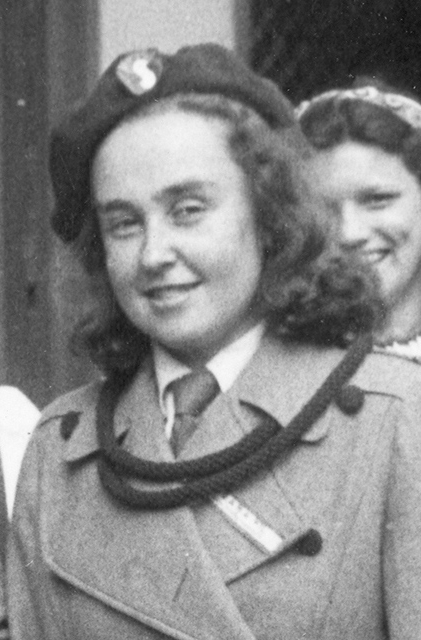I had a guilty conscience towards my husband that he had to go to PTP because of me

Stáhnout obrázek
Eva Potůčková, nee. Zimolová was born on 9 May 1927 in Prague into the family of Jan Zima, a technical clerk in a gasworks, and Karla, née Štorkánová. Her parents were Sokol officials. The Potůčeks lived in an apartment house in Prague Holešovice, which was built in 1906 by their grandfather František Štorkán, an investor and businessman at the time. During the war, Eva‘s uncle Otto Frömpter, a Sokol official who collaborated with the anti-Nazi resistance group Jindra, was executed. In the spring of 1945, Eva‘s father died after spinal surgery. Eva had been in the Sokol since she was four years old and after the war, when the Sokol was re-established, she joined it again, already as a pupil leader and vice-principal. Eva graduated from high school and in 1946 she entered the University of Political and Social Sciences because she was interested in social work. During her studies, however, the Communists abolished the social studies course, and when she left the school in 1950, it was called the College of Political and Economic Sciences. Thereafter, because of her bourgeois background, she found it difficult to find employment. Thanks to a friend from Sokol, she was able to work as a social worker, then she completed her pedagogical minimum and taught at primary and secondary school. For the longest time she worked at the clothing factory in Prague, where she taught economics. In the 1950s, the Communists took two tenement houses from the family, and the house mistress put pressure on the Potůček family to vacate one apartment in the house. Eva Potůčková‘s husband was probably also sent to the mines for three years instead of the regular army to join the PTP (auxiliary technical battalions). After November 1989, the houses were returned to the family in restitution, and Eva returned to the restored Sokol as head of the pupils.

















